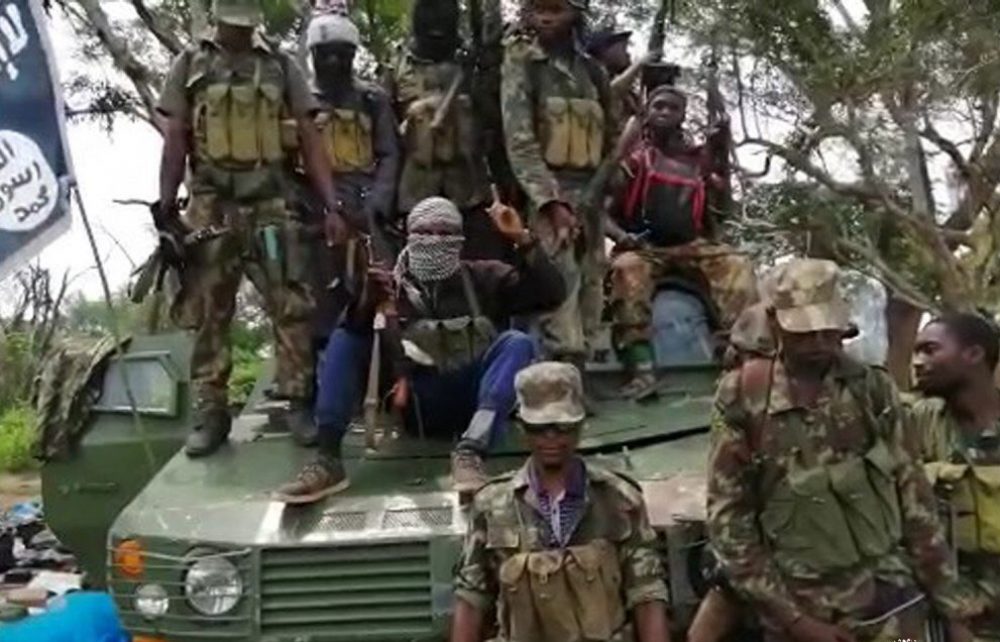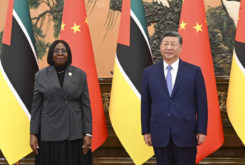Despite multiple attempts by the Mozambique government to defeat the Islamist insurgency in Cabo Delgado province, security conditions have continued to worsen, with ISIS now claiming to have inflicted casualties among the military and seized armoured vehicles. President Filipe Nyusi, who last week visited the province has named new ministers for Defence and the Interior. In the meantime, liquid natural gas (LNG) projects that are predicted to boost the country’s economy in the next few years, are already facing higher costs.
The Rovuma LNG consortium (Area 4) is making the signing of the Final Investment Decision (FID) for the main natural gas exploration project in Cabo Delgado (Mamba) dependent on the resolution of pending matters, according to industry sources.
The estimation of total investment between operators (ExxonMobil and Eni) and the consortium continues, with the goal of reducing costs as much as possible: The initial estimate has been increasing, mainly due to the “context costs” related to the worsening of security conditions in the province.
The process is being evaluated by the companies that make up the Mozambique Rovuma Venture (MRV) consortium (ExxonMobil, Eni and China National Petroleum Corporation (CNPC), operators) which controls 70% of the exploration and production concession. The remaining 30% is held in equal parts by Galp Energia, Kogas and ENH.
In 2017, the consortium closed the FID on the construction of a floating extraction platform, commissioned to KD Consortium, in the Coral Sul zone of Area 4, the first to go into production in the Rovuma basin, starting in 2022. However, the main source of gas has yet to be closed.
The difference between Coral Sul and Mamba is in the quantities: While the platform in Coral Sul will supply 3.4 million tons per annum (mtpa) of LNG from 2022, the Mamba zone should produce about 15.2 mtpa predictably from 2025. That’s nearly 4.5 times the estimate for Coral Sul and well above the 12.9 mpta estimated for Area 1, now operated by Total.
Compliance with deadlines depends on the FID, after which major work on the ground will begin. In October 2019, the consortium awarded the Engineering, Procurement and Construction (EPC) contract to the JFT joint venture (JGC, Fluor and Technip FMC) in the amount of US$500 million.
Still to be met is the condition related to the conclusion of negotiations with the government with a view to securing the construction and operation of Areas 1 and 4, especially the Afungi Peninsula complex where the infrastructure for receiving, transforming and exporting gas from the two areas will be located. Guarantees such as the reinforcement of military units, improvement of their training/preparation and the role of private security companies will constitute central issues that will have to be closed before the FID is formalised, according to industry sources.
This factor is also central from an economic point of view, taking into account that the greater risk implies greater investment in protection and prevention, as well as a general increase in insurance premiums, namely for human resources, partly made up of expatriates, in the project.
In naming his new government, President Nyusi named new ministers of Defence, Jaime Neto, and Interior, Amade Miquidade. The replacement of the previous incumbents was, according to party sources, dictated by the failure in addressing the Cabo Delgado insurgency, which has been growing since October 2017.
Of the 16 districts in the province of Cabo Delgado, around half are on alert as a result of attacks by armed groups. Command problems in the Mozambican Defence Armed Forces (FADM) and riot police (UIR) units on the ground and the lack of intelligence means to anticipate group movements make state intervention ineffective, in addition to the lack of air support and equipment and inexperience and demotivation of the soldiers posted, with high level of defections. The insurgents have been extending their range of action, from the coast to the interior, to the south of the Rovuma River.
In late January, insurgents launched a series of attacks in Bilibiza, targeting homes and public facilities, including the teacher training college and the Agrarian Institute (IABil), managed by the Aga Khan Foundation, the only technical secondary school in Cabo Delgado. Facilities at AIBil were set alight, but the extent of the damage remains unknown, although it’s believed that no staff or students were hurt in the attack.
The moderate Islamic influence of the Aga Khan Foundation has been considered central to containing Islamist radicalism in the region. A health centre owned by the foundation was also hit in the attacks.
ISIS, via its local arm IS-CAP (Islamic State Central Africa Province), has also claimed responsibility for an attack against an FADM barracks in Mbau on 23 January, killing 22 and injuring several others. According to security sources, the personnel present were inexperienced recruits from the Boane Sergeants Training School in Maputo province, and were deployed to the region as part of the basic recruit course.
The frequency of such attacks is growing, with around 16 in January alone. Other villages in the province have come under attack from the insurgents in the last weeks, with villagers killed and dozens of houses looted and destroyed.
Speaking at the end of the UK-Africa summit in London, President Nyusi called on the international community for support, saying the solution to this “multinational problem” will not depend solely on Mozambique.




